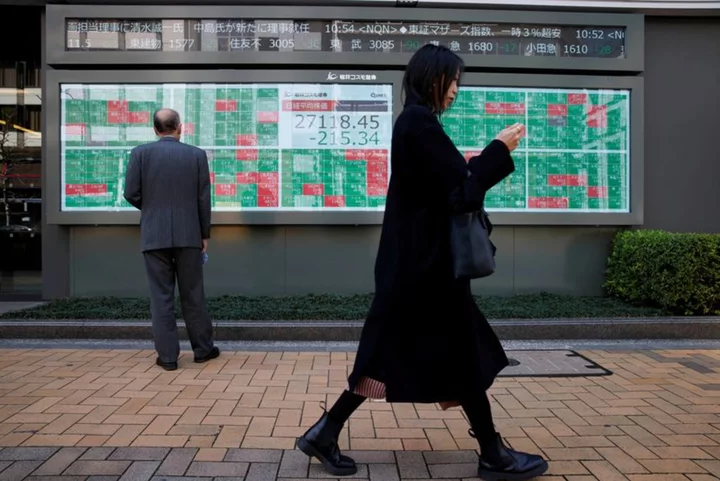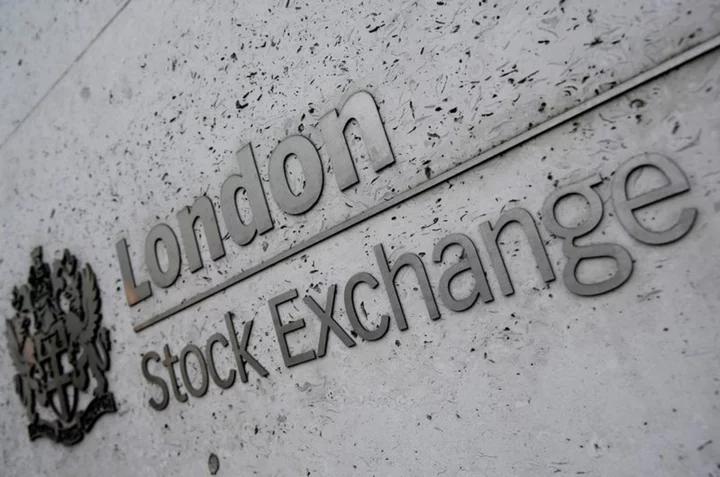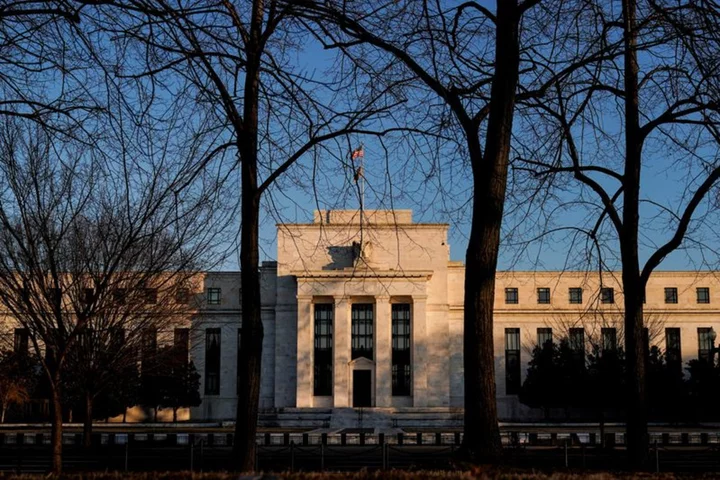By Kane Wu
HONG KONG Asian shares rose on Tuesday as bond yields eased, boosted by dovish Federal Reserve remarks and a dip in oil prices after Monday's surge, but markets remained cautious amid violence in the Middle East.
Europe and U.S. markets also looked set to open higher, with FTSE futures up 0.78% and E-mini futures for the S&P 500 index up 0.07% at 0504 GMT.
MSCI's gauge of Asia Pacific stocks outside Japan narrowed morning gains to rise 0.81%.
Top Fed officials indicated on Monday that rising Treasury yields could steer the central bank from further rate increases, helping to spur a rise in bond prices after those markets had been closed the previous day in the U.S. and Tokyo.
A series of economic and trade data, including U.S. inflation and China credit and trade data, are due to be released in the next week.
Markets are keeping a close watch, however, on military clashes between Israel and the Palestinian Islamist group Hamas, after Hamas' surprise strike on Saturday that killed hundreds of Israelis.
The Israeli military has since said it called up an unprecedented 300,000 reservists and was imposing a total blockade on the Gaza Strip, raising expectations of a possible ground assault.
"It's pretty early days to assess the meaningful impact of what's happening in the Middle East and what it actually means for markets," said Kerry Craig, a global market strategist at JPMorgan Asset Management.
"If it takes a drawn-out time and we get more actors involved in it, obviously there's going to be a bigger market impact from that."
Japan's benchmark Nikkei average jumped 2.5%, while Australia's S&P/ASX 200 closed up 0.7%, both led by energy stocks.
China's blue-chip CSI 300 Index dropped 0.58% as investors rushed to sell companies with exposure to the Middle East. The Hang Seng Index, however, rose 1.1%.
China's largest private property developer Country Garden Holdings warned that it might not be able to meet all of its offshore payment obligations when due or within the relevant grace periods, weighing on the country's beleaguered property sector.
U.S. stocks ended higher on Monday, with energy shares rising along with oil prices. The S&P 500 energy index ended up 3.5%.
The markets' initial reaction to the developments in the Middle East was a bout of risk aversion, analysts from National Bank of Australia said in a note.
"That said, it is interesting to note that the magnitude of the moves has been relatively contained and, in many instances, not all the moves have been sustained," they said.
Oil prices eased after climbing more than 4% on Monday. Brent crude fell 0.44% to $87.76 a barrel as of 0535 GMT, while U.S. West Texas Intermediate crude eased 0.49% to $85.96 a barrel.
"The unrest and volatility in the near-term suggest that upside risks to oil prices will persist," said OCBC economists in a note.
"Our base case is that the tensions may remain contained to Gaza and Israel, even if the conflict is protracted in duration. This will lead to some volatility in oil prices during intense periods of conflict but should see prices normalize, following the knee-jerk reaction."
Spot gold gave up earlier gains to hover around $1,860.6 per ounce, after scaling a one-week high on Monday as investors sought safe havens.
The dollar softened on Tuesday along with U.S. interest rate expectations. Asian currencies edge lower.
Ten-year Treasury yields, which have been surging, fell 12 basis points to 4.67%.
(This story has been corrected to say that ten-year treasury yields fell 12 basis points to 4.67%, not 2 basis points to 3.35%, in paragraph 21)
(Reporting by Kane Wu in Hong Kong; Additional reporting by Stella Qiu in Sydney; Editing by Edmund Klamanhn and Kim Coghill)









